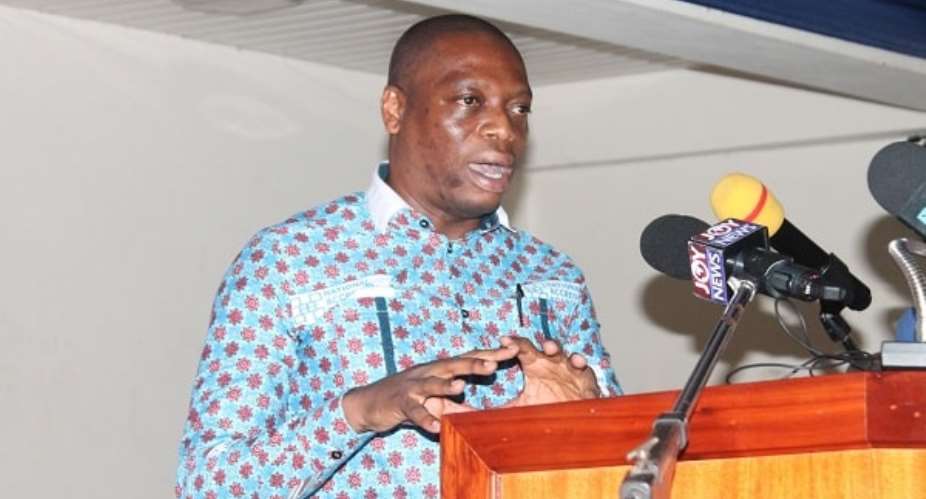The National Accreditation Board (NAB) says it will start auditing the qualifications of lecturers in all private chartered universities in the country from next year, the Executive Secretary of the board, Dr Kingsley Nyarko, has said.
The move, he explained, was to, among other things, ensure that institutions operated according to the guidelines of the board.
Dr Nyarko said this in Accra on Tuesday when he outlined the new Five-Year Strategic Plan of the NAB.
Plan
The plan, he said, was the result of months of consultations and deliberations between the board and a cross-section of stakeholders.
He mentioned the private chartered institutions whose lecturers would be audited to include the Valley View University, the Ashesi University and the Central University and said the move was to ensure quality assurance.
In the past, Dr Nyarko added, the NAB had audited public tertiary institutions, including the University of Cape Coast, the University of Ghana, the Kwame Nkrumah University of Science and Technology and the University for Professional Studies, Accra (UPSA).
Auditing
Throwing more light on the auditing of institutions, he said last year, for instance, three public institutions — the University for Development Studies (UDS), the Kumasi and the Mampong campuses of the University of Education, Winneba (UEW) and the University of Mines and Technology (UMaT) — were audited, with a focus to find out whether they were still operating within their mandates.
“We need to find out how they are improving upon their quality because these are institutions that were established by acts of Parliament, and by our regulations, we need to go there every five years and see how they are making progress,” he said.
In order to ensure that the highest standards and quality were achieved in tertiary education, Dr Nyarko said, the work of the board would be underpinned by professionalism, responsiveness, excellence, integrity and innovation.
“It was a critical self-examination period for the board to review its processes, outputs and outcomes, with the view to extracting useful insights to guide its determination to guarantee quality tertiary education in the country,” he said.
Positive impact
The Minister of Education, Dr Matthew Opoku Prempeh, said the launch of the strategic plan would not compromise the government’s plans for the tertiary education sector.
He commended the board for taking a bold step to launch the plan, saying: “I’m optimistic that it will impact positively on the performance of the entire organisation.”
He said it was gratifying that the key issues facing the tertiary education sector had been captured in the plan.
“These include the need for a national qualification framework and standardisation of academic programmes across all disciplines,” he said.
Launch
The Board Chairman of the NAB, Professor Kofi Awusabo-Asare, who launched the strategic plan, said the board was mindful of the products who would be coming out of the free senior high school (SHS).
In general, he said, about 100,000 fresh students were admitted to tertiary institutions every year, but with the free SHS, the number was likely to increase to about 160,000.
The Chairman of the Quality Assurance Committee of the NAB Board, Prof. Kwame Omane-Antwi, said the new plan was to consolidate the gains made on previous plans.
The event was held alongside the inauguration of an Information Resource Centre on the board’s premises.
---graphic.com.gh





 Former Kotoko Player George Asare elected SRC President at PUG Law Faculty
Former Kotoko Player George Asare elected SRC President at PUG Law Faculty
 2024 elections: Consider ‘dumsor’ when casting your votes; NPP deserves less — P...
2024 elections: Consider ‘dumsor’ when casting your votes; NPP deserves less — P...
 You have no grounds to call Mahama incompetent; you’ve failed — Prof. Marfo blas...
You have no grounds to call Mahama incompetent; you’ve failed — Prof. Marfo blas...
 2024 elections: NPP creates better policies for people like us; we’ll vote for B...
2024 elections: NPP creates better policies for people like us; we’ll vote for B...
 Don’t exchange your life for wealth; a sparkle of fire can be your end — Gender ...
Don’t exchange your life for wealth; a sparkle of fire can be your end — Gender ...
 Ghana’s newly installed Poland train reportedly involved in accident while on a ...
Ghana’s newly installed Poland train reportedly involved in accident while on a ...
 Chieftaincy disputes: Government imposes 4pm to 7am curfew on Sampa township
Chieftaincy disputes: Government imposes 4pm to 7am curfew on Sampa township
 Franklin Cudjoe fumes at unaccountable wasteful executive living large at the ex...
Franklin Cudjoe fumes at unaccountable wasteful executive living large at the ex...
 I'll 'stoop too low' for votes; I'm never moved by your propaganda — Oquaye Jnr ...
I'll 'stoop too low' for votes; I'm never moved by your propaganda — Oquaye Jnr ...
 Kumasi Thermal Plant commissioning: I pray God opens the eyes of leaders who don...
Kumasi Thermal Plant commissioning: I pray God opens the eyes of leaders who don...
